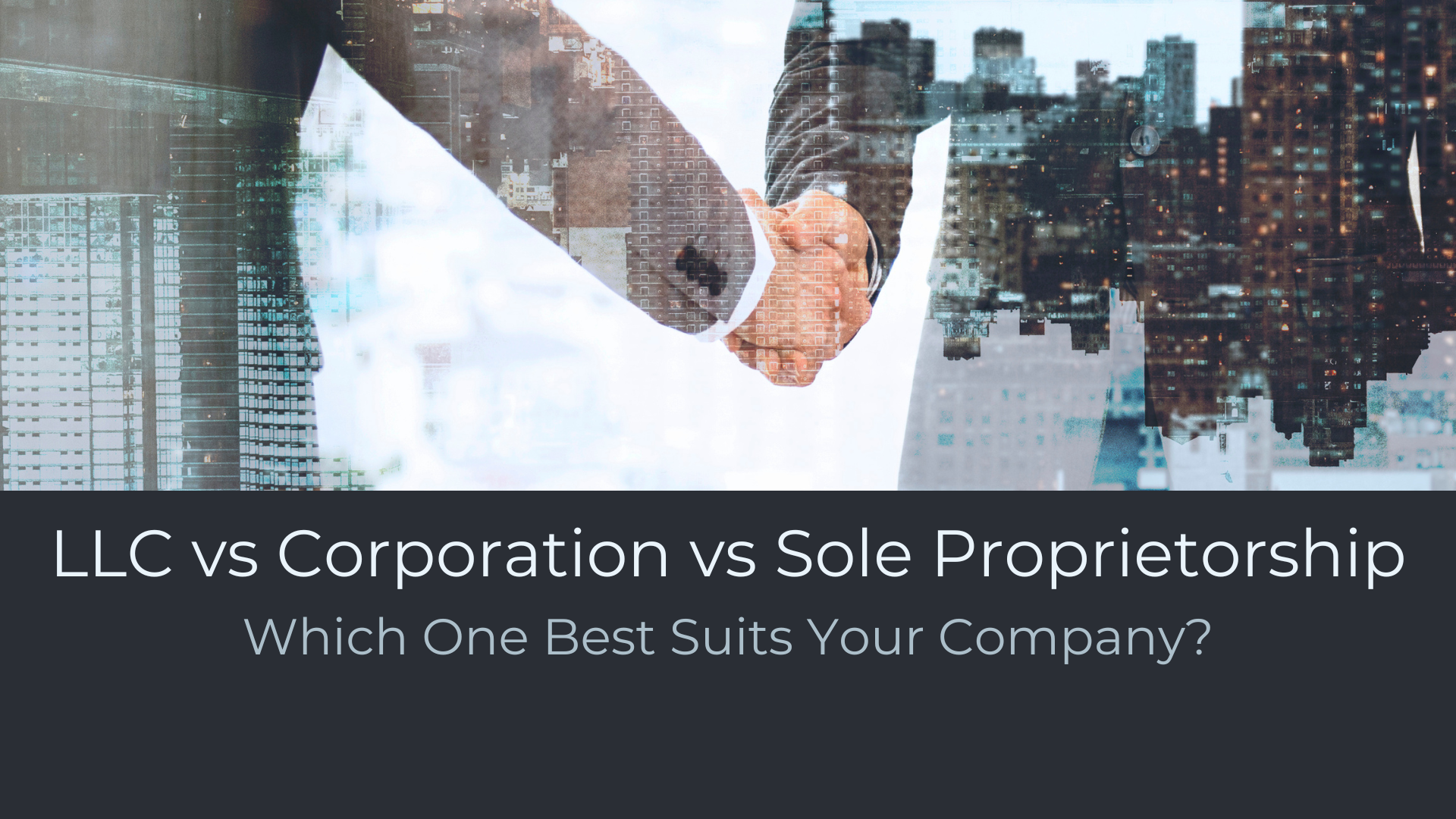Starting a business can be an exciting journey, but your success hinges on selecting the right business structure. Your choice will impact your legal liability, taxes, and overall operations. The three most common business forms are Sole Proprietorship, Limited Liability Company (LLC), and Corporation. Here’s a comparison to help you weigh the benefits and drawbacks of each.
Sole Proprietorship
The simplest business structure, a sole proprietorship is owned and operated by one person. Official registration is typically not required, except for local business licenses.
Advantages:
- Minimal Documentation: Easy to set up with low start-up costs.
- Complete Control: The owner has full decision-making authority.
- Simplicity in Taxation: Income is reported on the owner’s personal tax return, eliminating corporate tax filings.
- Less Administrative Burden: Fewer rules and regulations compared to other structures.
Disadvantages:
- Unlimited Personal Liability: The owner is personally responsible for business debts and legal issues.
- Challenges in Raising Capital: Financing can be difficult for sole proprietorships from lenders and investors.
- Limited Business Continuity: The business ceases to exist if the owner retires or passes away.
Limited Liability Company (LLC)
An LLC combines the benefits of a sole proprietorship or partnership with those of a corporation, offering legal protection without the complexities of a corporation.
Advantages:
- Limited Liability Protection: Owners (members) are not personally liable for business debts.
- Flexible Tax Treatment: Can be taxed as a sole proprietorship, partnership, or corporation.
- Less Formality: Requires less documentation than a corporation.
- Pass-Through Taxation: Income is reported on individual tax returns, avoiding double taxation.
Disadvantages:
- State-Specific Regulations: LLCs are subject to varying state laws and fees.
- Self-Employment Taxes: Members may have to pay self-employment taxes on their share of earnings.
- Limited Lifespan: Some states require LLCs to dissolve upon an owner’s death or after a set period.
Corporation (C Corp & S Corp)
A corporation is a separate legal entity from its owners (shareholders) and offers the highest level of liability protection.
C Corporation Advantages:
- Limited Liability: Shareholders are not personally liable for business debts.
- Access to Capital: Can raise funds by selling stock.
- Perpetual Existence: The corporation continues even if ownership changes.
- Tax Benefits: Profits can be reinvested at corporate tax rates.
C Corporation Disadvantages:
- Double Taxation: Earnings are taxed at both the corporate level and again as dividends to shareholders.
- Complex Structure: Requires more documentation and compliance with regulations.
- Operational Formalities: Must adhere to corporate governance rules, including shareholder meetings and board of directors.
S Corporation (“S Corp”)
An S Corporation shares similarities with a C Corporation but offers pass-through taxation.
Advantages:
- Limited Liability Protection: Similar to a C Corp.
- Avoids Double Taxation: Profits and losses pass through to shareholders’ personal tax returns.
- Potential Tax Savings: Owners may reduce self-employment taxes.
Disadvantages:
- Ownership Limitations: Restricted to 100 shareholders who must be U.S. citizens or residents.
- IRS Requirements: Must meet specific criteria to maintain S Corp status.
- More Documentation: Requires compliance with corporate policies and additional paperwork compared to an LLC.
Choosing the Right Business Structure
Consider the following factors when deciding on the best structure for your company:
- Liability Protection: An LLC or Corporation offers better personal asset protection than a Sole Proprietorship.
- Taxation: Decide between pass-through taxation and corporate tax rates based on how you want your business income taxed.
- Capital Generation: If you plan to raise funds, a Corporation may be the best choice.
- Simplicity: An LLC is generally easier to manage than a Corporation due to fewer legal restrictions.
- Long-Term Goals: A Corporation provides greater longevity if you want your business to continue after your departure.
Final Thoughts
Choosing the right business structure is crucial for maintaining financial health and smooth operations. If you’re unsure which option is best for your company, consult a professional.
Meet Samy Basta, Our Founder
Samy Basta, founder of Basta CPA in San Francisco, has extensive experience guiding businesses toward the ideal structure for their unique needs. Whether you require advice on tax strategies, liability protection, or long-term growth, Samy and his team are here to help.
Schedule an online meeting with Samy Basta today for professional recommendations tailored to your business requirements!

